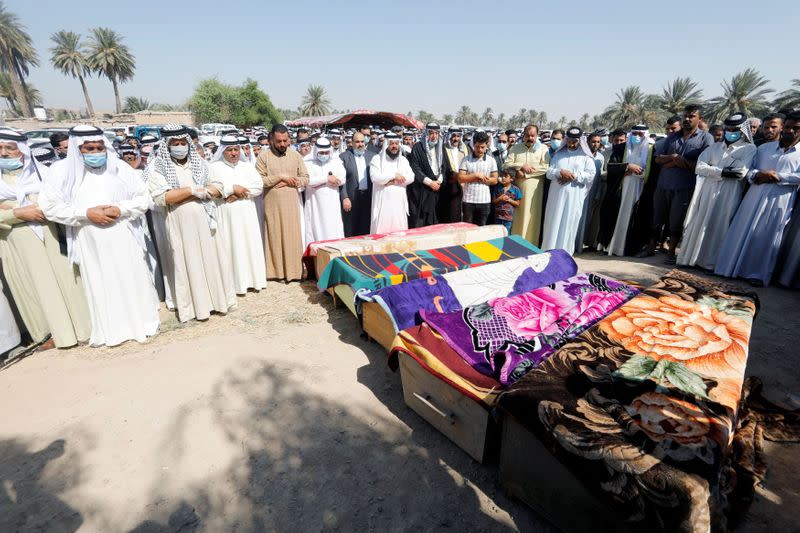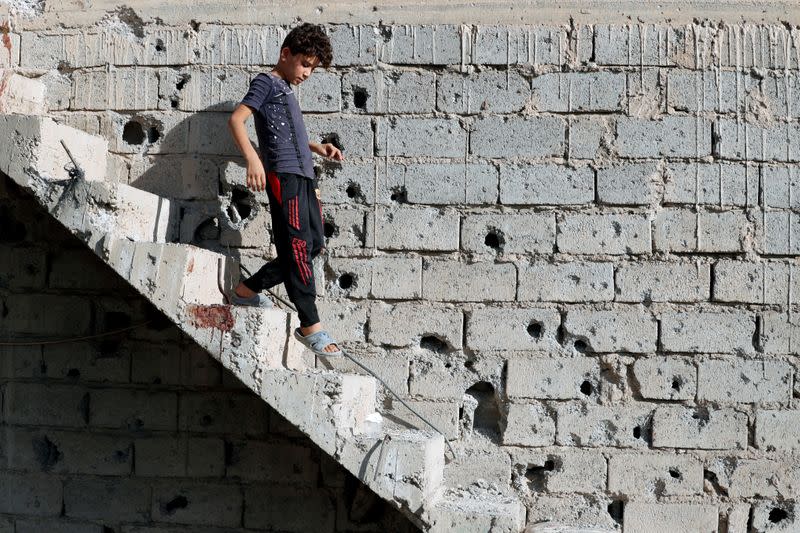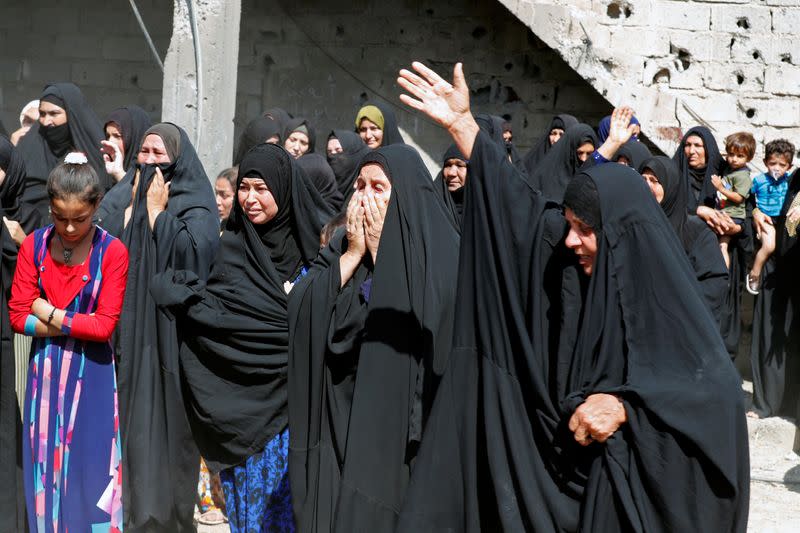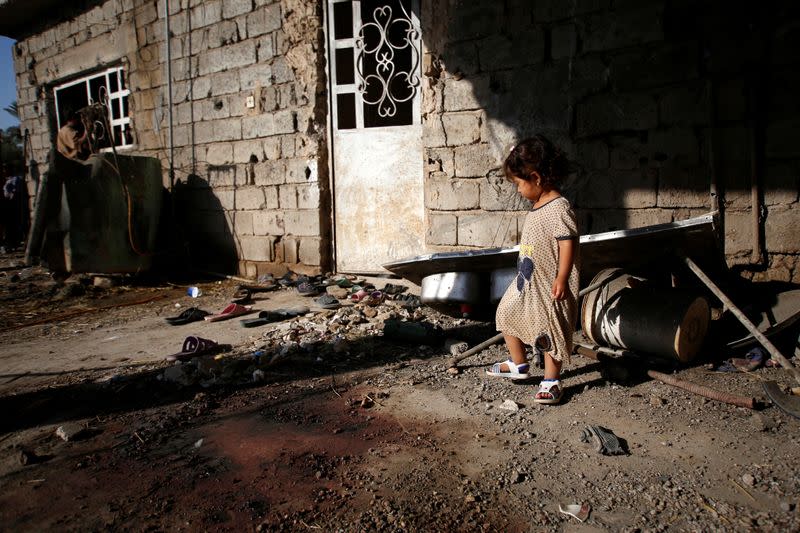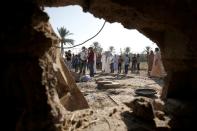U.S. 'outraged' by rocket attack in Baghdad - state department
WASHINGTON (Reuters) - The United States is "outraged" by Monday's rocket attack in the Iraqi capital Baghdad that killed five civilians https://www.reuters.com/article/idUSKBN26J2LD, the U.S. State Department said on Tuesday, urging Iraqi authorities to take immediate action to hold the perpetrators accountable.
On Monday three children and two women were killed when two militia rockets hit a family home, the Iraqi military said. Police sources said Baghdad airport was the intended target.
The attack coincided with Iraqi officials and Western diplomats saying Washington has made preparations to withdraw diplomats https://www.reuters.com/article/idUSKBN26J1Z4 from Iraq after warning Baghdad it could shut its embassy. Any move by the United States to reduce its diplomatic presence in a country where it has thousands of troops would be seen in the region as an escalation of its confrontation with Iran, which Washington blames for missile and bomb attacks.
Iraqis fear their country could become a battleground in a proxy war.
"We have made the point before that the actions of lawless Iran-backed militias remains the single biggest deterrent to stability in Iraq," State Department spokeswoman Morgan Ortagus said in a statement.
"We are outraged by yesterday’s rocket attack in Baghdad that killed civilians, including a mother and her children," she said.
Two Iraqi intelligence sources have suggested plans to withdraw American diplomats were not yet in motion, and would depend on whether Iraqi security forces were able to do a better job of halting attacks. They said they had received orders to prevent attacks on U.S. sites, and had been told that U.S. evacuations would begin only if that effort failed.
Rockets regularly fly across the Tigris towards the heavily fortified U.S. diplomatic compound, constructed to be the biggest U.S. embassy in the world in central Baghdad's so-called Green Zone during the U.S. occupation after invading in 2003.
(Reporting by Humeyra Pamuk. Additional reporting by Idrees Ali; editing by Grant McCool)

